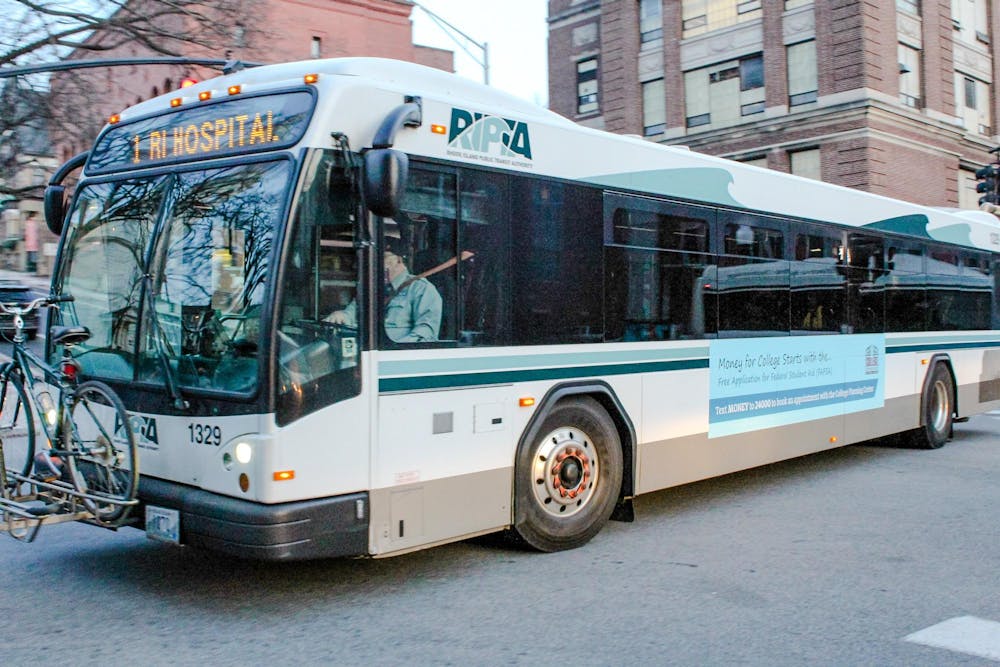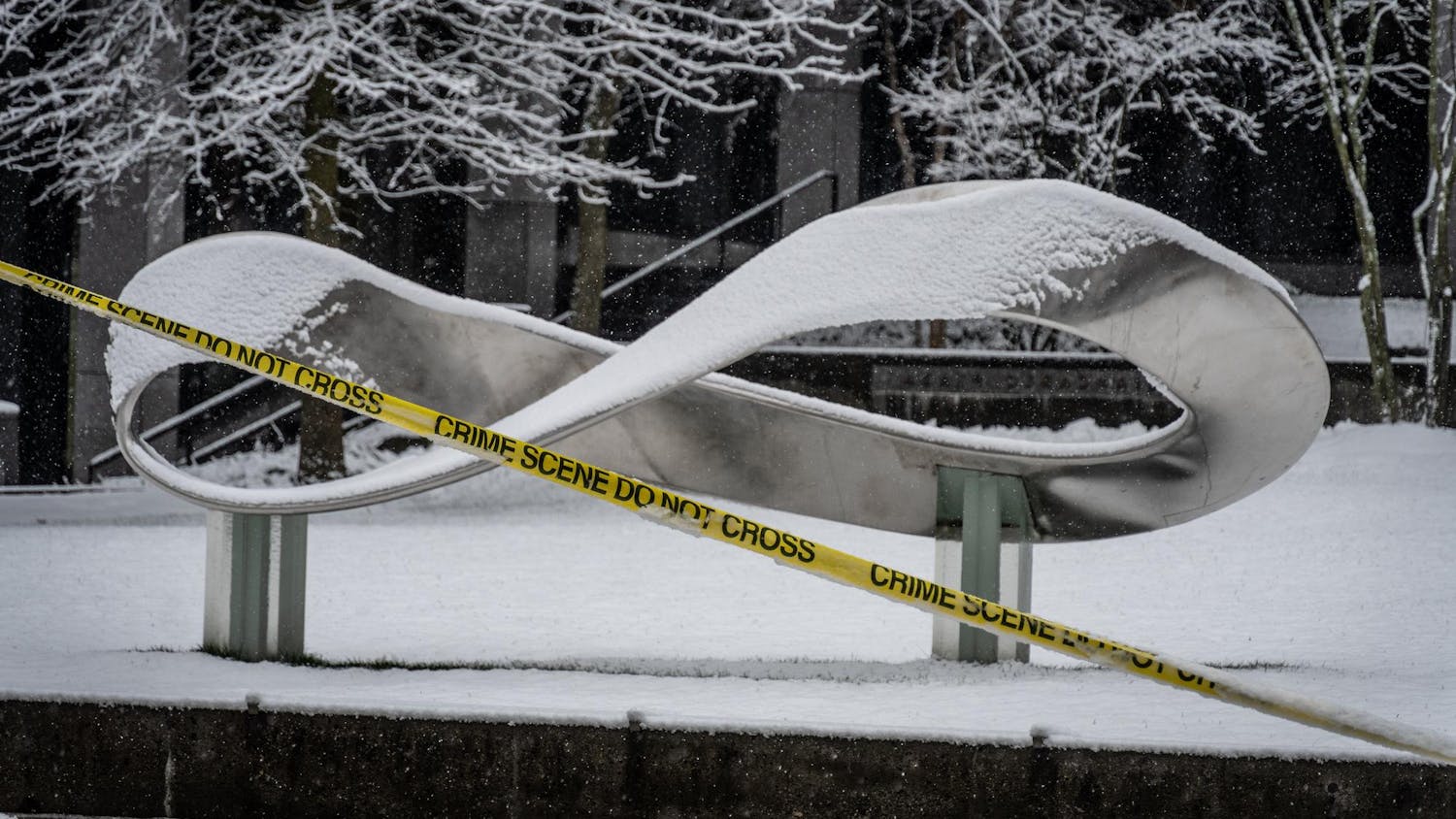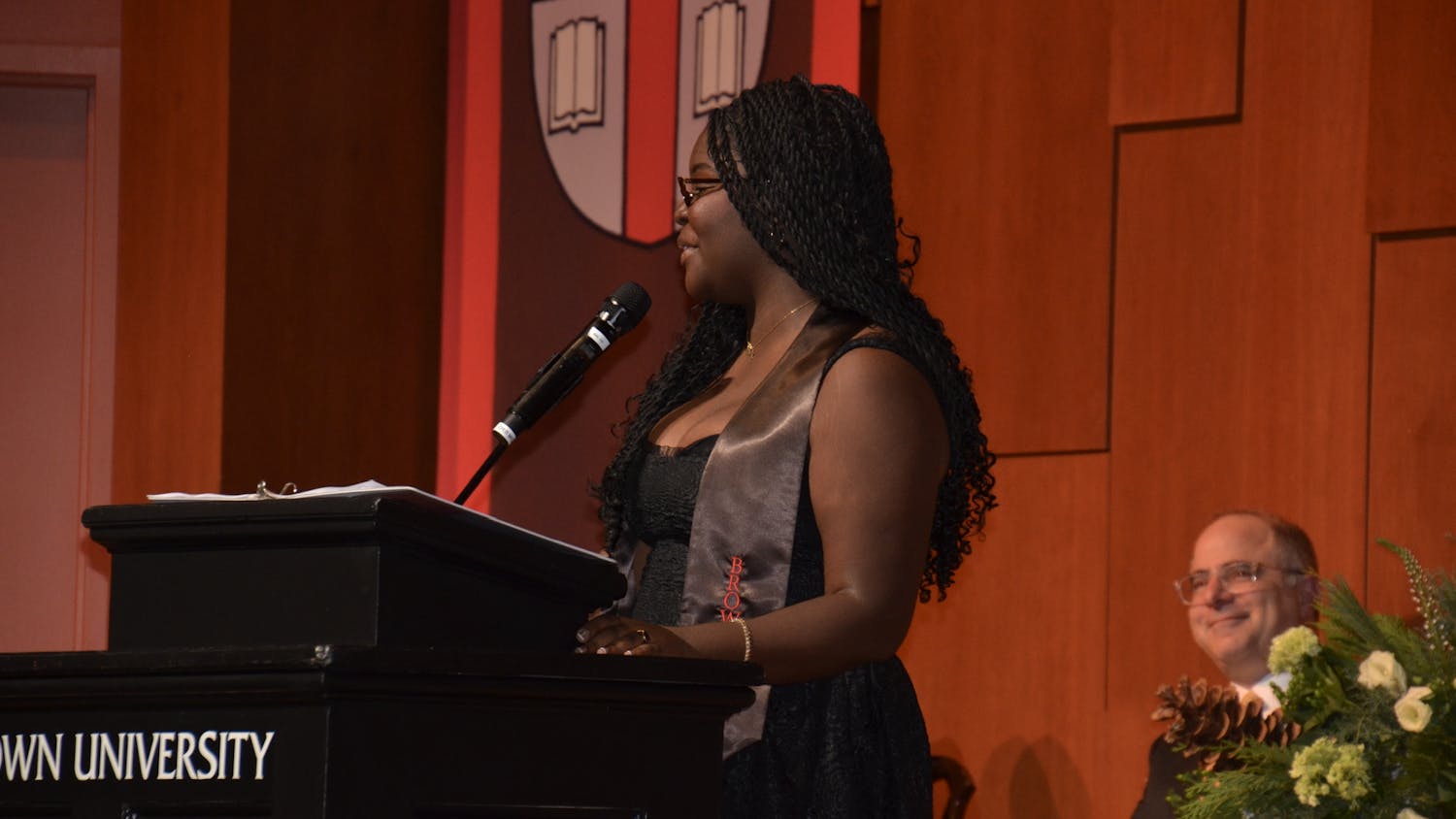Last month, the Rhode Island Public Transit Authority faced an end date for two free-fare programs: one for all passengers of the R-Line and another for low-income passengers on all RIPTA lines. The former program expired, but RIPTA directors voted to extend the latter program for another six months.
The Herald spoke to RIPTA riders and Brown community members about the pilot programs and their experiences using the buses.
R-Line fare-free pilot
RIPTA’s R-Line, which runs from the Pawtucket Transit Center to the Broad City Line, was free for all passengers from Sept. 1, 2022 through September 2023.
According to a quarterly RIPTA report, the R-Line “is RIPTA’s most frequent and highest ridership route.” In mid-2022, the R-Line carried roughly 16% of RIPTA’s bus ridership, the report reads.
The fare-free pilot “intended to increase transit ridership and improve access and mobility for low-income people,” according to the report. The pilot served as “an opportunity to advance the conversation about how best to assist with climate goals and offer equitable and expanded transportation choices in Rhode Island,” the report reads.
Maria Monteiro rides the RIPTA every day while commuting to and from work, picking up her grandkids and running errands. “It’s my car. It’s my ride,” she said. “I need it.”
“I miss the pilot,” Monteiro said, adding that the pilot program “was a big help in getting from Providence to Pawtucket.”
Based on RIPTA data, the end of the pilot program has resulted in an approximately 24% ridership decrease, ecoRI previously reported. During the pilot, year-over-year ridership increased by 40%.
Alice Ragan, an academic program coordinator for the University’s Department of Education who frequently uses the RIPTA, noted that “there were a lot more young people on here, a lot more students were able to use it” while the R-line fare-free pilot was in place.
She added that the pilot program “increased accessibility and it made a lot more people aware of, and active users of the bus system.”
Peggy Overton, who used the pilot to access RIPTA transportation after losing her bus pass, described the pilot program as “a godsend.”
“I hope they bring it back,” she said, referring to the pilot.
Overton noted that the R-Line route goes “all the way to Pawtucket,” which has a shelter and a location for harm reduction nonprofit Project Weber/Renew. She said the program was “good for people who need those services” but who “don’t always have two dollars to get on the bus.”
Alex Bautista ’25, an outreach worker with the University’s Housing Opportunities for People Everywhere club, which distributes single-use bus passes to locals in need, said more people have requested such passes since the end of the pilot program.
Bautista, who takes the RIPTA to volunteer at the Rhode Island Free Clinic, said he noticed a lot more people on the R-Line during the fare-free pilot program.
“The R-Line stops right in front of the clinic,” he said. Without the fare-free program, “I feel like a lot of people now have to think, ‘Is this cost going to affect me?’”
Iris Fernandez, who uses the RIPTA about once a week, said she believes RIPTA should make the bus free more often. Without a bus fare, some people are “stranded,” she said.
While riders may be seeking more fare-free programs from RIPTA, Raposo Perry noted RIPTA has only been able to maintain a balanced budget through the 2024 fiscal year due to emergency relief funding from the COVID-19 pandemic.
Without a new funding source, she added, relief funding will be exhausted in less than two years and RIPTA will begin experiencing “annual financial losses exceeding $30M simply to maintain existing service levels.”
No Fare Pilot Program
RIPTA’s No Fare Pilot Program enables low-income riders to take the bus for free.
In Oct. 2022, RIPTA’s Board of Directors led staff to establish a no-fare pilot program for low-income and unsheltered people who needed transportation and “did not qualify for any existing transit benefit program,” RIPTA representative Cristy Raposo Perry wrote in an email to The Herald.
The program, conducted in partnership with twelve human services organizations, established a “pool of 775 participants” upon its initiation, Raposo Perry wrote. According to RIPTA’s outreach to community partners and shelter locations, “many people experiencing homelessness did take advantage of the program to access support services, hopefully on their way to stable housing.”
In light of its extension, the No Fare Pilot Program “will shift the responsibility of funding and managing bus passes from RIPTA to partner organizations,” Raposo Perry added.
Raposo Perry also wrote that “while RIPTA is not a social service agency,” it understands the “value and importance of transit to low-income Rhode Islanders” and is “committed to helping our partner agencies secure the resources needed to fund bus passes for low-income and unhoused individuals who do not quality for other existing transit assistance programs.”
Norman LaMoore uses the RIPTA every day for transportation to Amos House, a local soup kitchen and social services nonprofit.
LaMoore said the RIPTA is an important service for individuals such as formerly incarcerated people who may not have access to other transportation options.
“People that get out of prison … should be able to use their prison ID as a bus pass until they can get back on their feet,” he said, adding that the $20 replacement fee for bus passes should be eliminated.
Brown and RIPTA
Nearly 30% of University students reported that they had never used the Rhode Island Public Transit Authority’s buses or other public transportation services, according to The Herald’s Fall 2023 Poll. A similar share said that they rarely use the system, while an additional 33% of respondents reported they take the RIPTA either a couple times per semester or a few times a month.
Just seven percent said they take the RIPTA weekly and less than 1% reported using the RIPTA daily.
Through the RIPTA’s University pass program, which Brown has been a member of since 2009, “all members of the Brown community … with a valid Brown ID are able to ride on all RIPTA buses/routes at no cost to the student, faculty member, or staff member,” Carleia Lighty, director of transportation and Brown Card Services, wrote in an email to The Herald.
The University’s partnership with RIPTA aligns with Brown’s “goals toward reduction of carbon emissions,” Lighty added. “The more that members of the Brown community can take advantage of RIPTA, the greater the reduction in reliance upon automobiles.”
Ragan, who rides the RIPTA every day to and from work, said the University’s partnership makes RIPTA “a lot more accessible” and pushes her to use the bus service more frequently.
But Ragan said that the bus system can sometimes pose scheduling issues. “With RIPTA, sometimes, a lot of things are off schedule,” she explained. “It can be hard to plan ahead because of that, especially when a bus takes off five minutes before it’s supposed to and I’m late for work.”
In 2022, RIPTA was on time for 81% of weekday trips, which is within its target range, ecoRI reported this year.
Kristen Rodriguez, a financial coordinator for Brown Dining Services, said the RIPTA has become her primary mode of transportation since her car began having issues.
Rodriguez emphasized that some University staff can’t “always afford things” like bus fare and many “actually do take the bus.”
“It goes back to having the card swipe and it being free,” Rodriguez explained. “It’s very convenient.”
Despite the timing issues he sometimes experiences using the bus service during his transit to the Rhode Island Free Clinic, Bautista said the University-RIPTA partnership “makes commuting more convenient.”
“I probably wouldn’t have thought about volunteering outside of Brown’s campus if it wasn’t for the fact that Brown pays for RIPTA,” he said. “It makes leaving campus a lot easier and more convenient.” Bautista added that, for consistent RIPTA riders, the “fare could definitely rack up as an expense, especially for students.”
Mikayla Kennedy is a Metro editor covering housing and transportation. They are a junior from New York City studying Political Science and Public Policy Economics.





